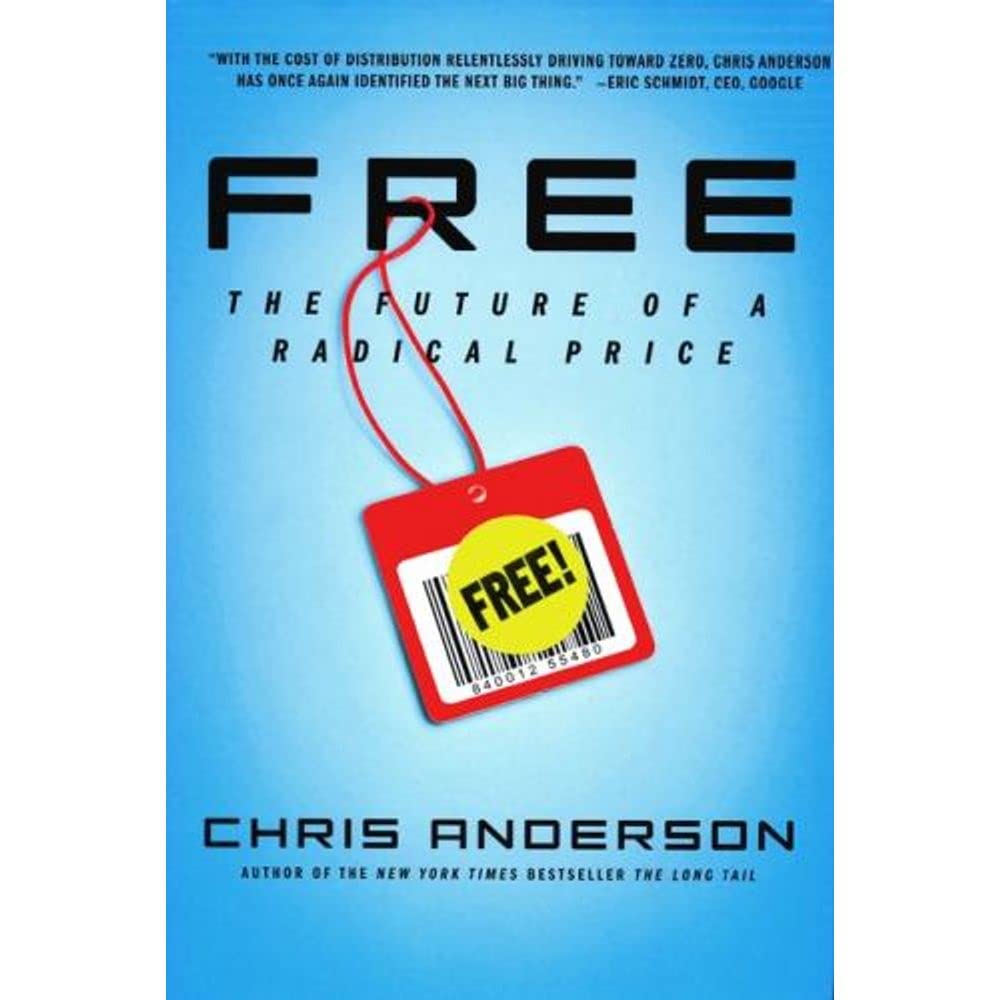Found in 4 comments on Hacker News
lostphilosopher · 2018-12-11
· Original
thread
Chris Anderson wrote a book on these sort of "pricing" systems: _Free: The Future of a Radical Price_ [1].
Worth a read if you're into this idea. It includes some interesting historical examples of creative selling.
Can't say I _agree_ with the book, but glad I read it.
1. https://www.amazon.com/Free-Future-Radical-Chris-Anderson/dp....
arafalov · 2015-08-21
· Original
thread
This does not cover the "Free" tactic that was used to make Jell-O actually penetrate the households.
That story can be read in the book "Free" by Chris Anderson: http://www.amazon.com/Free-The-Future-Radical-Price/dp/14013... (pages 7-10, available in the book preview)
shalmanese · 2010-12-14
· Original
thread
Chris Anderson wrote an entire book about this: http://www.amazon.com/Free-Future-Radical-Chris-Anderson/dp/...


DHH has written about abundance as part of his approach to Rails, https://world.hey.com/dhh/i-won-t-let-you-pay-me-for-my-open...
The “Post-scarcity economy” article on Wikipedia lists a number of references, https://en.m.wikipedia.org/wiki/Post-scarcity_economy
Generally, computing trends toward abundance. Computers are priced about the same, but do more each generation.